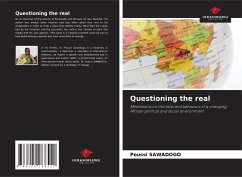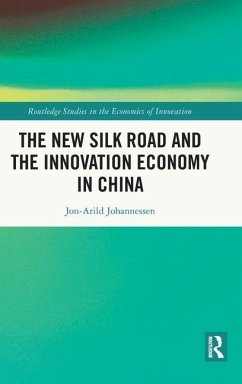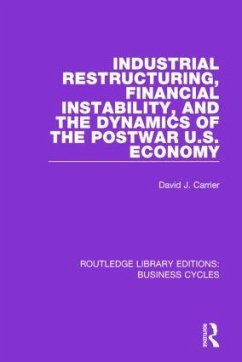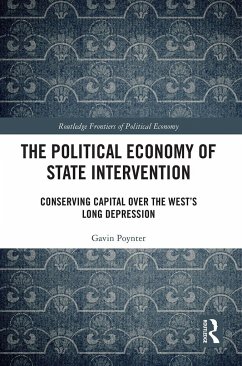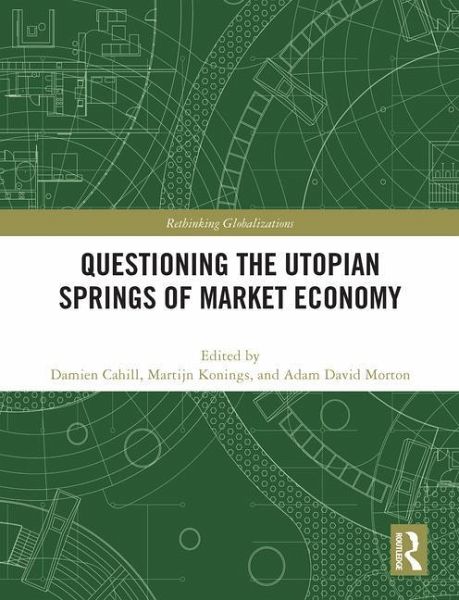
Questioning the Utopian Springs of Market Economy

PAYBACK Punkte
27 °P sammeln!
Revisiting the magnetic poles of Karl Polanyi and Friedrich Hayek on the utopian springs of political economy, this book seeks to provide a compass for questioning the market economy of the twenty-first century. For Polanyi, in The Great Transformation, the utopian springs of the dogma of liberalism existed within the extension of the market mechanism to the 'fictitious commodities' of land, labour, and money. There was nothing natural about laissez-faire. The progress of the utopia of a self-regulating market was backed by the state and checked by a double movement, which attempted to subordi...
Revisiting the magnetic poles of Karl Polanyi and Friedrich Hayek on the utopian springs of political economy, this book seeks to provide a compass for questioning the market economy of the twenty-first century. For Polanyi, in The Great Transformation, the utopian springs of the dogma of liberalism existed within the extension of the market mechanism to the 'fictitious commodities' of land, labour, and money. There was nothing natural about laissez-faire. The progress of the utopia of a self-regulating market was backed by the state and checked by a double movement, which attempted to subordinate the laws of the market to the substance of human society through principles of self-protection, legislative intervention, and regulation. For Hayek, in The Road to Serfdom, the utopia of freedom was threatened by the abandonment of individualism and classical liberalism. The tyranny of government interventionism led to the loss of freedom, the creation of an oppressive society, and the despotism of dictatorship that led to the serfdom of the individual. Economic planning in the form of socialism and fascism had commonalities that stifled individual freedom. Against the power of the state, the guiding principle of the policy of freedom for the individual was advocated. Taking these different aspects of market economy as its point of departure, this book promises to deliver a set of essays by leading commentators on twenty- first- century political economy debates relevant to the present conjuncture of neoliberalism. The chapters in this book were originally published in a special issue of the journal Globalizations.







